
Senior physics writer Emily Conover joined Science News in 2016. She has a Ph.D. in physics from the University of Chicago, where she studied the weird ways of neutrinos, tiny elementary particles that can zip straight through the Earth. She got her first taste of science writing as a AAAS Mass Media Fellow for the Milwaukee Journal Sentinel. She has previously written for Science Magazine and the American Physical Society. She is a two-time winner of the D.C. Science Writers’ Association Newsbrief award, and a winner of the Acoustical Society of America’s Science Communication Award.

Trustworthy journalism comes at a price.
Scientists and journalists share a core belief in questioning, observing and verifying to reach the truth. Science News reports on crucial research and discovery across science disciplines. We need your financial support to make it happen – every contribution makes a difference.
All Stories by Emily Conover
-
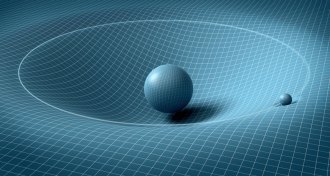 Quantum Physics
Quantum PhysicsKey Einstein principle survives quantum test
Particles in quantum superposition adhere to the equivalence principle in atomic test.
-
 Animals
AnimalsThe scales of the ocellated lizard are surprisingly coordinated
The mazelike patterns of the ocellated lizard’s skin follow a set of rules from computer science.
-
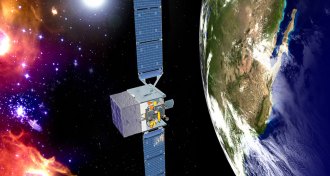 Physics
PhysicsGamma-ray evidence for dark matter weakens
Excess gamma rays are still unexplained, but they might not come from dark matter.
-
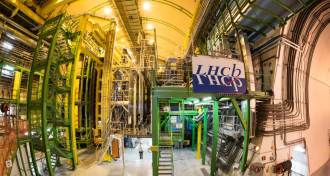 Particle Physics
Particle PhysicsCollider data hint at unexpected new subatomic particles
A set of particle decay measurements could be evidence for new physics.
-
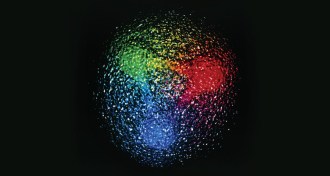 Physics
PhysicsThere’s still a lot we don’t know about the proton
Researchers are puzzling over the proton's radius, spin and whether it decays.
-
 Physics
PhysicsThe drama of Albert Einstein’s life unfolds in the new series Genius
Science takes a back seat in National Geographic’s series Genius, which focuses more on politics and Albert Einstein’s love life.
-
 Particle Physics
Particle PhysicsNew particle probably can’t explain nuclear reactor neutrino mystery
An antineutrino anomaly seems due to problems with scientists’ predictions, not sterile neutrinos.
-
 Physics
PhysicsPhysics trips up efforts to keep shoelaces tied
Loose laces are due to inertia and force of feet hitting the floor.
-
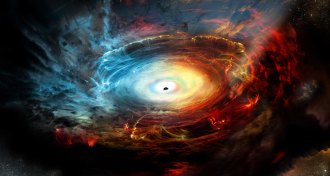 Astronomy
AstronomyEvent Horizon Telescope to try to capture images of elusive black hole edge
Network of radio observatories will attempt a first-ever glimpse at an event horizon.
-
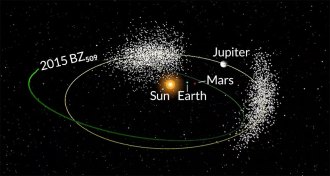 Astronomy
AstronomyAsteroid in Jupiter’s orbit goes its own way
Asteroid shares Jupiter’s orbit around the sun but travels in the opposite direction as the planet.
-
 Quantum Physics
Quantum PhysicsMillions of atoms entangled in record-breaking quantum tests
Scientists make advance in the quest to take quantum effects to larger scales.
-
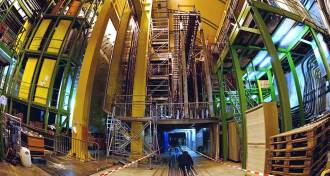 Particle Physics
Particle PhysicsLarge Hadron Collider experiment nabs five new particles
LHCb experiment detects new particles composed of two strange quarks and one charm quark.